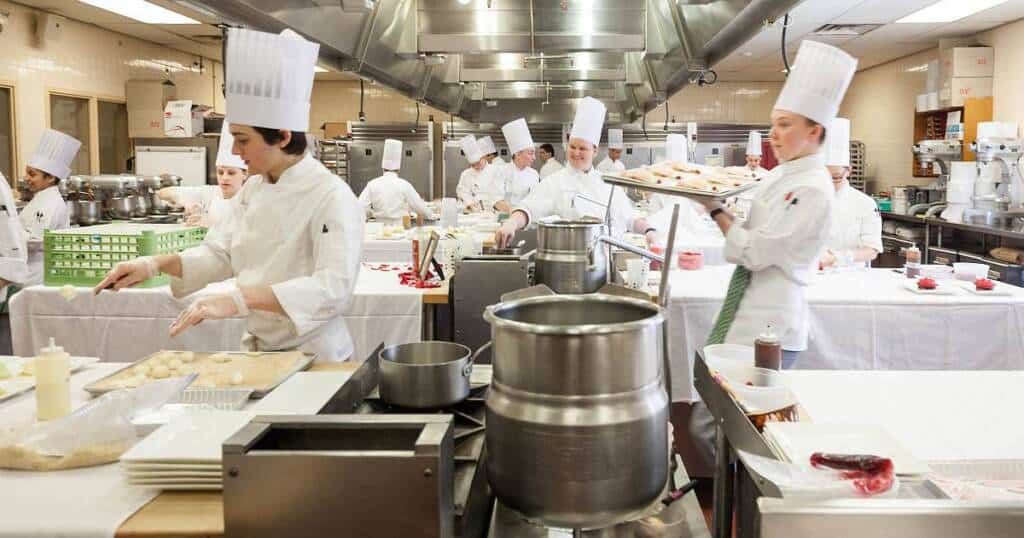A common question we get from students interested in coming here is, “Do I need experience in the food industry to do well at CIA?” followed by, “Will I fall behind classmates who do have experience?”
For sure, working in the food world or studying culinary arts in a vo-tech program in high school is a good thing. But you can also totally succeed at CIA having only cooked for family and friends! In fact, the #1 lesson CIA student Marisa Papell shares in her top 10 lessons from freshman year at CIA is, “Coming in with no kitchen experience can seem like a disadvantage, but it is not. You only need to be better than you were yesterday.”
So what can you do to make sure you’re doing that? In addition to committing yourself to that goal, remember that CIA’s faculty and staff are here to help you get you where you want to go, both academically and in your future career—no matter where your journey starts. Here’s what a few of them have to say:
“What I would say to a student wondering about whether they are ‘good enough’ is that we, as a college, will shape you into a successful student if you are willing to put in the study time and the focus required.”
—Thomas Schneller, associate professor—culinary arts
“Trust in yourself and the reasons why you want to come to CIA. Believe in and rely on your instincts and how you feel. Remember, even your faculty started on their career paths not knowing everything right away. So they are understanding and patient, but they do request your participation.”
—Tom Vaccaro ’85
“We see students succeed because they are using resources, developing study strategies, and learning to manage their time. As long as you are willing to put in the work and effort required, you will succeed here.”
—Jodi Amato, director—academic support services
“Culinary Fundamentals is an even playing ground. We break it all down, and through practice and repetition, you learn to do things the right way. Plus, there’s equal opportunity to use your brain as much as your hands—you find out how things work and why they work the way they do. By the end of the course, everybody’s kind of caught up with each other.”
—Cynthia Keller ’83, associate dean—culinary arts
“All you need is the desire and motivation. The technical skill and passion will follow.”
—Paul DelleRose ’94
